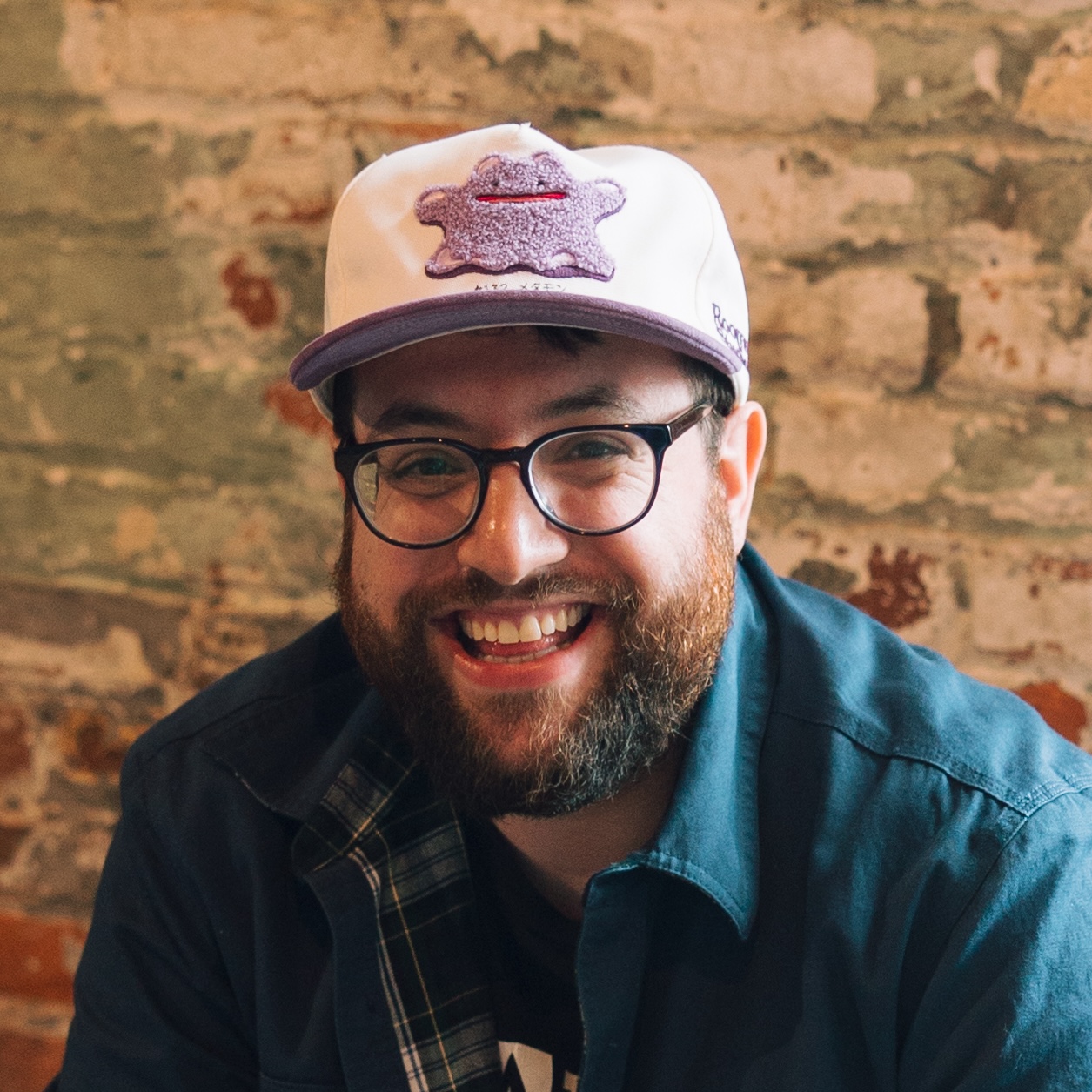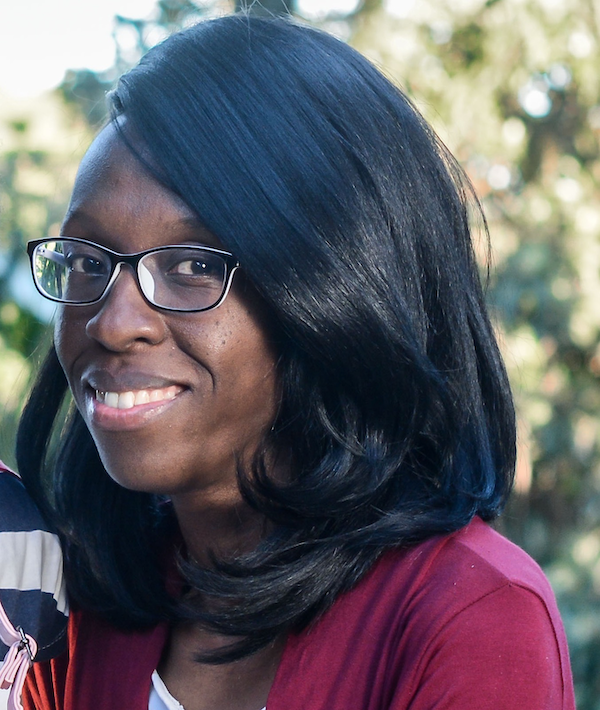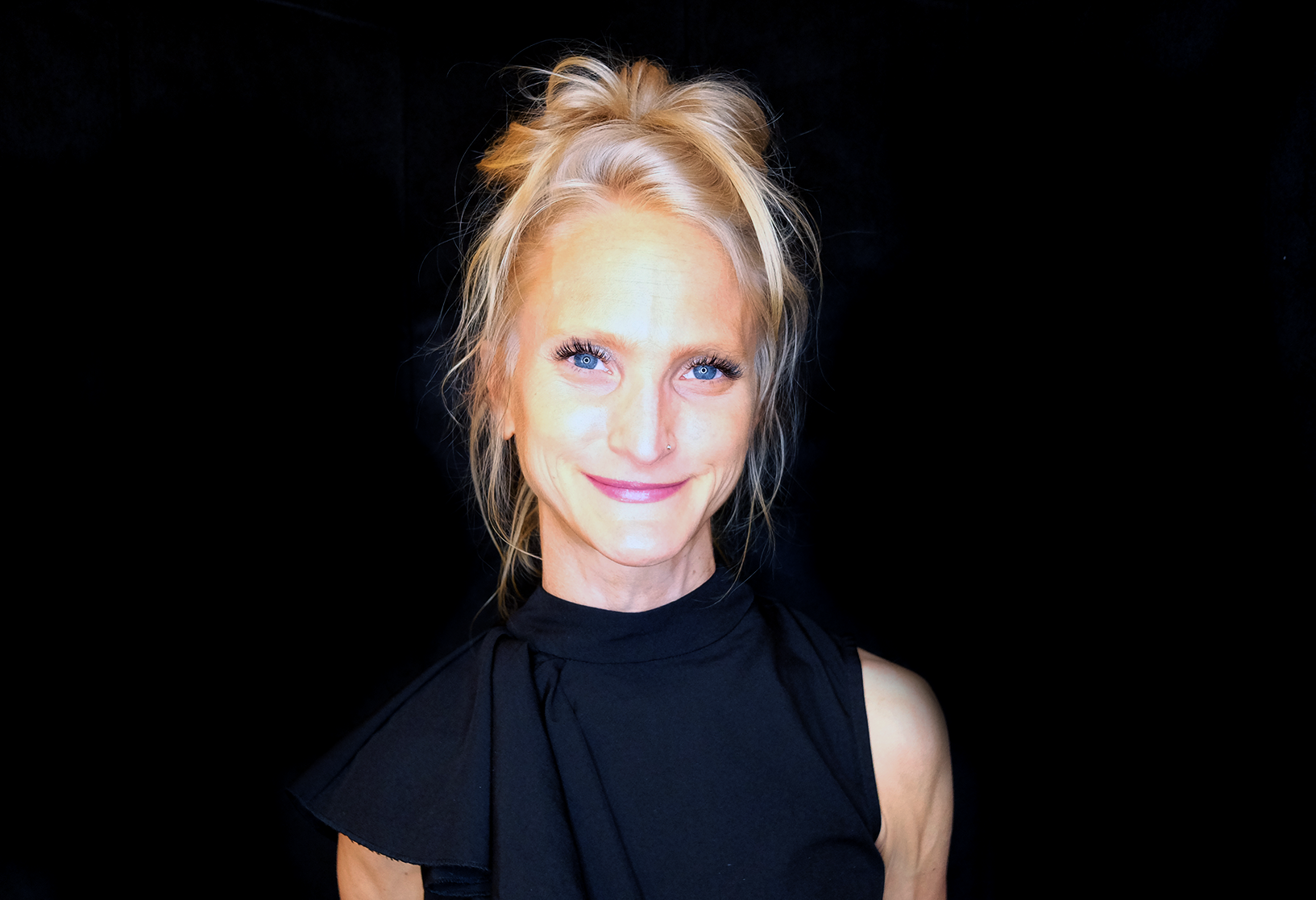No matter the type of interview — for a magazine article, video podcast, documentary film, or entree on Ira Glass’s private island — a good interview feels natural, like a great conversation.
Interviews are all about making the guest feel relaxed — as a general rule, the more comfortable your interviewee is, the more they'll be willing to reveal. And the goal of any interview is to get the guest to reveal something nobody has heard before.
Easier said than done, right? Not everyone is naturally engaging, especially when you shove a microphone in their face. Asking the right interview questions can often be the difference between a revealing interview and an awkward or stilted one.
30 best podcast interview questions to ask
When interviewees feel genuinely heard and prompted to think deeply, they’re going to open up. And podcast listeners love that. Sure, they want to hear relevant and interesting content, but they also want to know more about the person behind the mic.
The list of questions below offers a good mix of personal and professional insight. Tailor them based on your podcast topic and the unique qualities of your guest.
Introduction and background
1. Can you share a bit about your journey and how you got started in your field?
2. What inspired you to pursue your current career or passion?
3. What's one childhood memory that feels like a sneak peek into what you do now?
4. If your younger self met you today, what would surprise them the most?
Expertise and industry insights
5. What are the most exciting trends or developments happening in your industry right now?
6. Could you explain a complex concept from your field in a way that's easy for our listeners to understand?
7. What's a common myth about your profession you wish you could debunk?
8. What's the biggest "a-ha" moment you've had in your career?
9. What’s your advice to other practitioners in your industry?
Lessons learned and growth
10. What’s one thing someone can do to stand out to you?
11. What’s your biggest failure, and the most important lesson learned from it?
12. What’s something you’ve coached someone on recently?
13. What's something you've had to unlearn in your career or personal life?
Inspirations and influences
14. Which fictional character do you most identify with or admire?
15. Which culture, outside of your own, influences you the most?
16. Who or what has been the biggest influence on your career path or personal philosophy?
17. Are there any books, podcasts, or resources that have had a significant impact on you?
Personal journey and reflections
18. What’s your favorite mistake you’ve made?
19. Given the luxury of time, how would you approach your life?
20. What personal achievement are you proud of that not many people know about?
21. How has your understanding of success changed over the years?
Future and aspirations
22. Where do you see your industry going in the next few years?
23. How are you preparing for the next big change in your industry?
24. Where do you see the most potential for positive change in the world?
25. What legacy do you hope to leave behind?
Rapid-fire round
26. Analog or digital?
27. Night in or a night out?
28. Time travel to the past or the future?
29. Which superpower would you choose—flight or invisibility?
30. A must-visit country on your list?
Learn: How to record an interview: 11 pro tips
8 tips for writing great interview questions
Coming into an interview prepared with the right questions can get what you need from your guest — but that doesn’t mean you have to stick to the script. Here are our tips for crafting interview questions that will let you squeeze the best guest answers.

1. Do your research
Again, the goal of every interview should be to get the guest to reveal something new. So the most important step of the interview process is researching them.
Look into their work, their life; read, listen to, and watch other interviews they’ve done so you can be sure to elicit something different. Check out their social media profiles like LinkedIn or Instagram.
If the person you’re interviewing recently wrote a book or released a film, familiarize yourself with it so that you can discuss it. Research is the foundation of a good podcast and leads to meaningful, in-depth discussions.
2. Know what you want to get out of it
After you’ve brushed up on everything they’ve said and that’s been said about your guest, ask yourself, what do I still want to know? What questions have yet to be asked? Or thoroughly answered?
As you start writing your interview questions, make getting those answers your goal, and keep it front-and-center. Taking time to name your objective will help you write great questions that achieve it.
Keep the interviewee’s objectives in mind, too. Are they there to promote new work? Remember, it’s a transaction — you’re giving them something (exposure, promotional time, etc.) in exchange for sharing something your audience cares about.
💡PRO TIP: The goal of every interview is to get the guest to reveal or share something nobody has ever heard. That’s the kind of thing that will make a successful podcast, whether the guest is a big celebrity in their world or a relative unknown. — Brandon Copple, Descript Director of Content Marketing
3. Start with a question that introduces your guest
Your first question or two will set the tone for the whole interview, so try to ask an icebreaker that elicits some background information to give context to the interviewee and the interview itself. Rather than asking your interviewee to give their job description, get creative.
Ask an astronomer how they would explain their work to an extraterrestrial lifeform or a ballet dancer how they’d describe their life to a 9-year-old ballerina. A good fallback is to give their job title, then ask them to describe a typical workday.
4. Ask questions you want to know the answers to
Set the tone and show by indulging your curiosity and asking unique questions that go beyond what others have asked.
After soaking up everything about them, what do you still want to know? What about this person inspires you? Ask about the mistakes they made while doing something you like, or what helped them overcome their biggest challenge, maybe one that you face, too.
Your own genuine interest will prompt interesting personal questions, energize the conversation, and make things more compelling for your audience. Consider developing a signature question you ask at the end of every episode — something unique that underscores your brand or theme. It becomes a memorable moment listeners look forward to and keeps guests offering fresh perspectives.
5. Avoid yes-or-no questions
If you ask a question that can be answered with a simple “yes” or “no” answer, you risk not learning anything new. Open-ended questions will get a better answer because they give your interviewee the space to answer how they want.
Remember your interrogative pronouns and ask Who? What? When? Where? Why?, and How? Instead of “Did you always want to be an actor?” ask, “What sparked your love of acting?” or “When did you first know you wanted to be an actor?”
Try to get them to tell stories, and let them tell them on their own terms. A simple “What happened?” can elicit all sorts of interesting insights. The phrase “tell me about…” signals you want to hear their perspective. Getting them talking like this can reveal new details and information you can follow up on.
6. Don’t be afraid to ask the dumb questions
Not everyone in your audience will be on the same level of familiarity with your interviewee or their area of expertise. If they get in the weeds or use industry jargon, ask, "What does that mean?" for a more straightforward answer.
This has the additional benefit of putting the interviewee in a position of knowledge, which can make them feel more at ease. Be sure to intersperse these with more probing and complex questions. Otherwise, your interview may become too simple and boring.
7. Plan your follow-up questions
Follow-ups are indispensable in a good interview. You can usually avoid long-winded answers that knock the discussion off course by asking clear, specific questions and simple follow-ups. Follow-ups also help you and your guests reflect upon and analyze their responses.
Try a simple “how?” or “tell me more” anytime you want to dig deeper into an idea. You don’t necessarily have to list follow-ups when writing your interview questions, but it can help you stay organized if you at least mark the spots you think will benefit from extra questioning.
8. Give them the wheel
Cap off your interview by asking, "Is there anything I didn't ask that you'd like to talk about?" This works in various interview situations and ensures that your interviewee gets to accomplish their own goal for the interview. You never know what little nuggets of information your guest hasn't had a chance to reveal.
As a courtesy to your guest and a service to your audience, it can be helpful to ask for actionable information, like "How can readers or listeners follow your work online?" You can include this information in your show notes when publishing your podcast.
9. Consider sharing questions or topics in advance
While you don't need to hand over every question, sharing your main topics can help your guest prepare thoughtful answers. High-profile or nervous guests often appreciate a roadmap, and it can cut down on rambling. But if you want spontaneous answers, make sure you leave room for follow-ups and keep a few surprises in your back pocket.
6 tips for a successful interview
Once you’ve figured out how to write good questions and draw up a list in preparation, there are a few things every podcast host should do to make sure the interview is a success.

1. Be professional
Be timely and thoughtful when communicating with your interviewee. Send them calendar invites for important dates, and be on time for the interview. This shows that you respect them and the time they're taking to be interviewed by you.
2. Check all your equipment twice
Make sure any recording equipment you plan to use works and has enough battery life and storage space for your needs. Having an equipment failure in the middle of a good interview is embarrassing and takes up your precious time with your interviewee.
3. Put your guest at ease
Chat with your interviewee a bit to help them relax. Explain your interview process to them so that they know what to expect. If they’re new to speaking, give them some advice on how to speak to your podcast’s audience.
4. Let it flow, and go along
An interview is a conversation, not an interrogation; sometimes, the best thing comes when the discussion goes in unexpected directions. Remember, the goal is to get something new from them — so if they start talking about something you've never heard them talk about, see where it goes. You don't need to stick to the podcast script the entire time.
5. Shut up
Try to keep your questions succinct, and make sure you don’t ramble when you ask questions or react to your guest. It’s okay to talk to provide context or perspective. But let your guest dominate the conversation — listeners want to hear from them, not you.
And here’s an obvious, but incredibly important rule: Listen while they speak instead of preparing for the next question. This will help you come up with better follow-up questions and make the conversation flow naturally.
6. Silence is power
Silence never feels comfortable, but unless you’re live streaming, you can easily edit it out. If you let a pause linger, your interviewee might use it to work out a better answer to a question, or rush to fill it with information — maybe more than they meant to reveal.
7. Offer a final plug for your guest
Before you wrap up, invite your guest to mention where listeners can connect online or learn about their work. It’s a great way to show respect for their time and ensure your audience can follow up. You can include these links in your show notes so listeners can find them easily.
What podcast questions should you avoid?
A respectful and constructive interview is important for conveying insightful information to listeners. You don’t want to trip up a podcast guest with any weird, off-putting questions. It breaks the flow and leads to awkward silence (not the good kind).
As you prepare your questions, try to avoid these:
- Personal or invasive: Don’t pry into areas of your guests’ lives they wouldn’t want to discuss publicly. Things like “Why did you get divorced?” or “How much money did you make from book sales last year?” can make guests uncomfortable and derail the convo.
- Leading or biased: Imposing viewpoints on a guest can make them feel cornered or attacked. Scratch out any questions that limit genuine and open exchange of ideas, like “Don't you think that self-publishing is just for those who can't get a real publisher?” Instead, try something like “How would you respond to someone who says that self-publishing is just for those who can't get a real publisher?”
- Broad or open-ended: These types of questions can sometimes lead to good insights. But if they’re too broad, they can leave guests floundering for a starting point or context. Leave out questions like “Tell me about your life.” or “What do you think of the world today?”
- Repeat: You’ve done the research on your guest before they came on the show. Avoid asking too many questions they’ve already answered on other interview-style podcasts. This will bore both your audience and your guest.
- Offensive or controversial: Some questions can offend the interviewee or listeners. It's okay to discuss controversial topics when they’re relevant and approached with sensitivity, but avoid questions that are disrespectful, prejudiced, or meant to provoke.
If you plan to explore more personal territory, wait until the guest is comfortable and the conversation is flowing. Diving into deeply personal questions too soon can feel jarring, and it might cause the guest to clam up.
Take your podcast further with Descript
Whether you're recording a remote podcast, or interviewing in person, you want to prepare thoroughly with great podcast interview questions. Once you've got a stellar interview, you'll want to polish it before publishing it to engage your audience.
With Descript, you can streamline the editing process and produce higher quality audio and video, faster. Tools like automatic transcription and Studio Sound can elevate the quality of your podcast episodes and give listeners the best experience possible.
Frequently asked questions
How do I prepare for a podcast interview?
Research your guest’s background, outline a few main topics, and test your recording equipment. If you use Descript, you can run a quick practice session to refine your script or questions. During the interview, listen for opportunities to ask follow-up questions, and stay flexible if the conversation goes in a new direction.
How many questions should I plan for a 30-minute podcast interview?
Aim for about five to eight main questions. That leaves room for follow-ups and organic back-and-forth. If you plan too many, you might rush your guest and lose the spontaneous conversation your listeners enjoy.
How do you interview someone on a podcast?
First, schedule a time and confirm technical details. Next, research who you’re speaking with and prep a short outline of topics. During the interview, start with easy, open-ended questions, then listen closely for follow-ups. Wrap up by thanking your guest and sharing how listeners can learn more about them.
What are good questions to ask in a podcast interview?
Try open-ended questions that let your guest share personal stories or insights. You can ask about their background, lessons learned, future goals, or unexpected challenges they’ve faced. Give them space to elaborate, and follow up on any interesting points they mention.





































%20(1).JPG)



